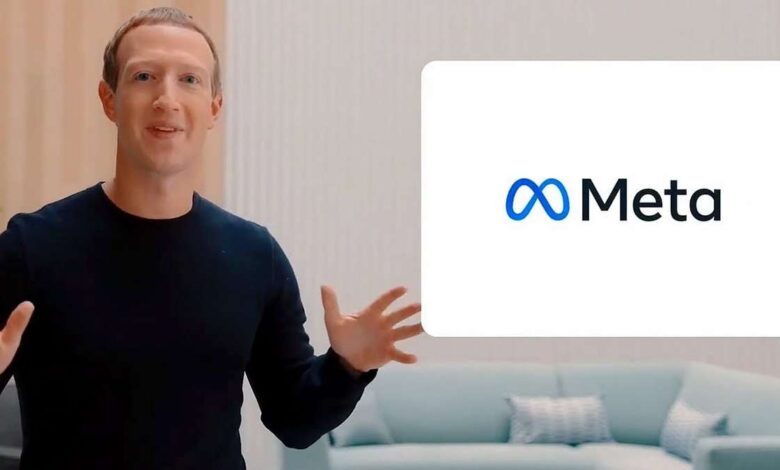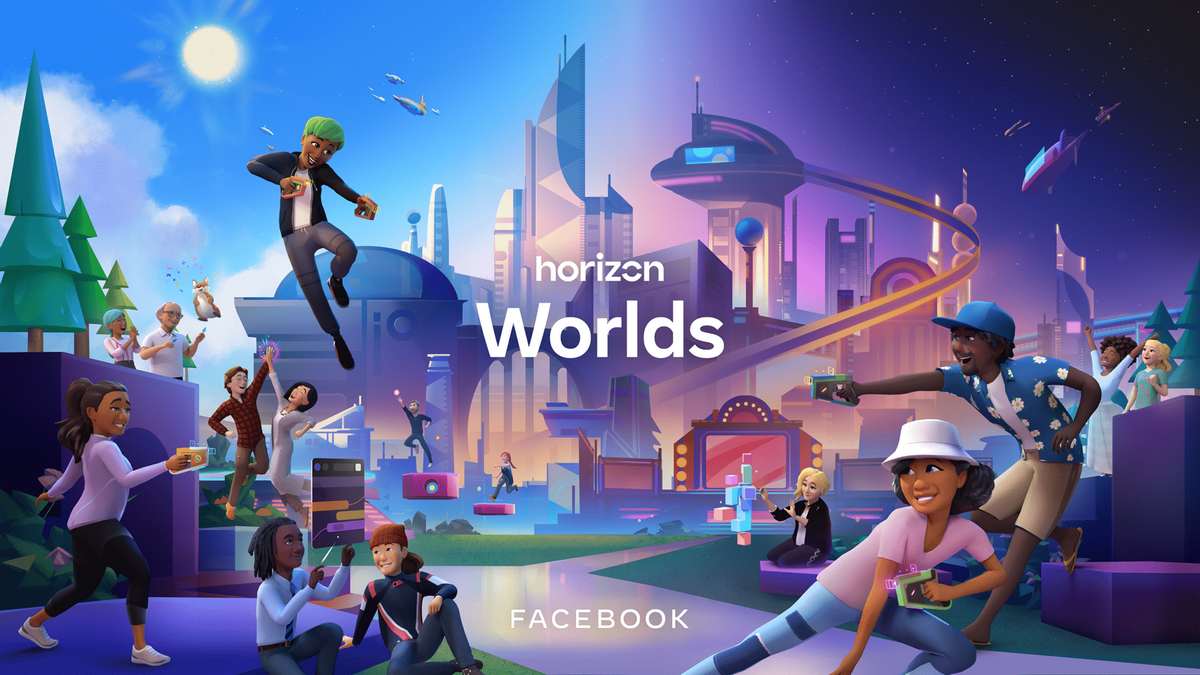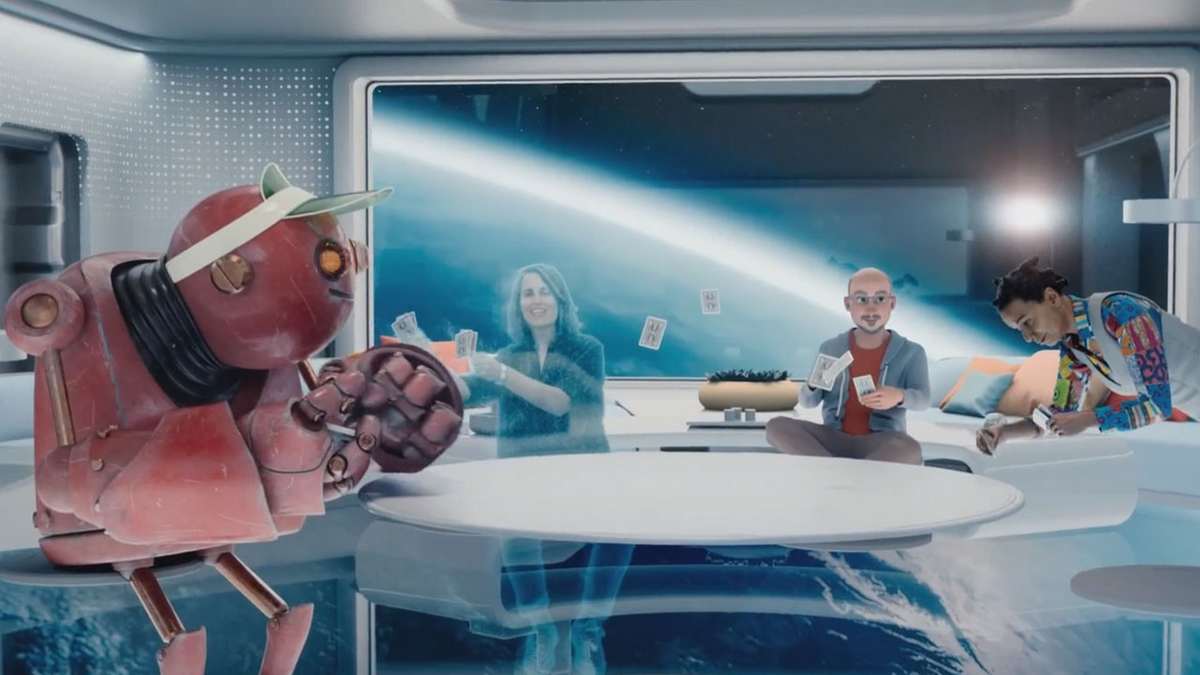What is METAVERSE and its great POSSIBILITIES?

What are the possibilities offered by the Metaverse – is it really a technological breakthrough or a new method of distancing ourselves from reality?
For a few days now, this term seems to be all over the media and social networks, as it promises to revolutionise the way we perceive the internet and communications. Before it becomes a reality, we will provide you with some simple explanations of the Metaverse and the potential it has to change the world.
Since Facebook CEO Mark Zuckerberg’s announcement, the term “Meta” has been in the minds of internet users for a variety of reasons, such as, the technological advancement that is just around the corner. However, many are unaware that this concept is also being explored by a variety of gaming companies and other industry giants such as Google, Microsoft and Nvidia, who have begun to present their long-term plans for what they believe will be the next big internet innovation.
Although at first glance all these projects may seem very complex, they start from the same vision and concept, so we will focus on explaining what the Metaverse is all about. In addition, we will analyse the advantages that the implementation of this new technology can bring to everyday life, the possibilities that the Metaverse offers for the evolution of business and how close we are to this concept becoming a reality.
New Horizons: What is the Metaverse?
To understand what the Metaverse is, it is necessary to start from its origin. The term Metaverse is an acronym in which the Greek prefix Meta (beyond) and the suffix Verso (universe) converge. It was first used in 1992 by the American writer Neal Stephenson in his sci-fi novel Snow Crash, who conceptualised a vision of workspaces in a virtual world in which we can interact by immersing ourselves in an alternate reality.

For their part, the plan of the giants of the technology industry is to create a Metaverse that works in a similar way to Stephenson’s, a virtual world that we can access using a series of electronic devices, which will make us believe that we are really inside it and will allow a fluid interaction with the environment without the sensation of looking at a screen. Although virtual reality is nothing new in the world of video games, it will be different in the Metaverse.
This is because it does not seek to create a fantasy world, but to recreate the real world in an alternative reality in which we will be able to do the same activities that we do today outside the home, but without having to move from our armchair. Therefore, the concept that companies such as Facebook or Microsoft are betting on, is to create a virtual parallel universe that we can access through virtual reality devices so that the senses of human perception make us feel that we are really inside and we can use the virtual content in our daily lives. However, unlike augmented reality, where we bring virtual objects into the real world, in the Metaverse, we will be the ones immersed in this new alternative world, living experiences similar to those of simulators but in a much more immersive way.
On the other hand, the key to the success of this new Metaverse concept will be that it can be fully immersive, or at least a step beyond the current virtual reality. Of course, we will still have to wear special VR glasses, but they will be upgraded to detect our facial expressions, so the avatar will be able to convey an accurate recreation of our body language and how we feel.
In this way, the avatar will be an accurate representation of who we are and how we move. In addition, some VR device manufacturers, such as Owatch, are already creating new 9D sims where gamers will be able to get much more immersive gaming experiences, as they will be able to walk, run, jump, hide and shoot as if they were on a real battlefield. These kinds of innovations show how different sectors of the industry are working to bring the Metaverse to life.
Although the main idea of the Metaverse is to design a world that recreates reality, developers like Facebook hope to give users total creative freedom, so that we can create avatars that represent us physically, but with the possibility of making changes at will. In turn, as the idea gains momentum, users are expected to create their own environments simulating their own homes or businesses as they see fit. All in all, the Metaverse will be able to further narrow the gap between the physical and virtual worlds, as instead of meeting friends in a café or liking their photos on social media, we will be able to interact in this new alternative environment.
Possibilities offered by the Metaverse: What will we be able to do in this universe?
Although it has not yet been designed, the Metaverse promises to bring great benefits to both business and everyday life, as it will offer many possibilities to various sectors with innovative products that will facilitate daily tasks. In this way, common activities such as attending conferences, meeting with friends or playing online video games can be interconnected to a greater degree using virtual reality devices.

According to emerging technologies analyst Victoria Petrock, the Metaverse will include various aspects of digital life as connectivity evolves, integrating the way we live real life with what we want to achieve in the virtual realm. To provide you with a more diversified view of the possibilities offered by the Metaverse, we will point out some of the activities that could evolve by implementing this new technology:
1. Virtual concerts
In the last couple of years, we have witnessed musicians performing online concerts, which can be accessed via a live streaming site. However, this practice works in a similar way to watching a live concert on television or the internet, which detracts greatly from the user experience.
Virtual reality, on the other hand, will allow people to have the feeling that they are actually present in the room where the performance is taking place, as they will be able to occupy a space on the stage where the concert is taking place. In this way, users will be able to enjoy a realistic experience from the comfort of their homes.
Additionally, special concerts such as Nat King Cole and Natalie Cole’s post-mortem reunions or voice synthesis programmes with 2D figures such as Vocaloid will have a much more gratifying impact, as we will be able to see highly realistic holograms.
2. Home Office
The COVID-19 pandemic brought major changes to the way we work globally, as millions of companies and jobs realised how telework can bring huge benefits to both businesses and workers. One way to maintain connectivity and camaraderie among a group working remotely is by making immersive video calls through meeting software such as Horizon Workrooms, which can be used with Oculus virtual reality devices.
With these elements, they will be able to create workspaces where they can hold conferences with their co-workers or bosses without having to leave their homes, where instead of looking at them in grids on a computer screen, they will see them virtually. At the moment, it is possible to do these using avatars, so there is no need to change clothes or dress up.
3. Online shopping
One of the activities that could have the greatest impact would be online shopping, which has seen a significant increase in recent years. The virtual reality that revolves around the Metaverse allows you to create spaces where you could go shopping as if it were a large online shopping mall, which would make the shopping process much more enjoyable. However, the big difference with the current model of commerce will be seen with the new possibilities offered by VR technology, since by entering our physical characteristics we could try on digital clothes and know for sure how they would fit us.
On the other hand, there are many shops that can benefit from the use of virtual reality, because if we want to see houses before buying one, we would not have to make programmed visits throughout the area, we would only have to use the virtual reality device to go through them and see which one we like.
4. Travelling the world
Currently, there are millions of people who travel the world through the options present in Google Maps, which show us some cities with a linear view. However, virtual reality will allow us to travel the world in a more immersive way, so we could leave a meeting with work colleagues to contemplate a dreamlike landscape in a Scottish forest.
On the other hand, there is a strong likelihood that if this alternative begins to catch on, travel agencies and national tourism boards will begin to create virtual tourism packages, taking subscribers on unexplored paths from the safety of their homes and at a fraction of the cost of a real trip.
5. Doing business
All technological innovations have had a significant impact on everyday business around the world, as they are tools to streamline, manage and improve important processes. The Metaverse could open many doors in the business world, as it will not only create a new channel for online transactions but will also give users the possibility to handle everything themselves. For example, an owner will be able to take care of all his or her businesses without having to visit them physically, as he or she will be able to control them using virtual reality.
However, the significant change can be seen in the possibility of creating one’s own business in one of these worlds, designing all the spaces as if they were physical premises. In this way, the unification of thousands or millions of businesses would give shape to a kind of virtual shopping mall, in which we could see avatars walking around and trying out products that we would later receive in our homes. In addition, the Metaverse could have its own economy, as there is the possibility of the implementation of tokens or virtual currencies for exclusive use, which we would acquire using fiat money.

Simple explanations of the Metaverse: Frequently asked questions
Mark Zuckerberg’s announcement of the Metaverse aroused the curiosity of many people around the world, making headlines even among those who have little interaction with electronic devices. As a way of providing you with more information, we will provide answers to some of the questions that are being generated around the creation of the Metaverse:
1. Is the Metaverse a Facebook-only project?
No. In his most recent interview, Zuckerberg explained that the Metaverse will be built by a conglomerate of companies, confusion has arisen because Facebook announced that it would change the name of its corporation to Meta, as well as making the creation of this new technology a priority. Although not only technology brands want to be part of the Metaverse, some consumer companies such as Coca-Cola, Gucci or Clinique have begun to promote digital products based on this proposal.
2. Will all of Facebook be in the new Metaverse?
Of course, Zuckerberg has expressed a strong belief in what he believes will be the next big thing on the internet and that it will have a big impact on the digital economy, expressing his desire that in a few years people will begin to see the Facebook group as a company that goes beyond social networking. For this reason, a couple of weeks ago the company changed its name to form and changed the parent company of applications such as Facebook, Instagram and WhatsApp.
3. Will they have access to more personal information?
There is no official information about this at the moment, as the structures on which the Metaverse will be built have not yet been created. However, there is a desire to run the Metaverse as a business model, so it will probably use personal data to recommend personalised content or sell targeted advertising.
In addition, emerging technologies analyst Victoria Petrock expressed concern about Facebook having greater access to users’ personal data because they have not yet solved the current security problems with their platforms. In addition, the company faces a crisis over statements by former employees, misinformation management and media monopoly investigations.
4. What will be real in the Metaverse?
At the moment, it is difficult to determine what will be the blurred lines between the real world and the virtual world, as the concept is just beginning to be built and it remains to be seen how other companies will act in the Metaverse. In the coming months or years, we will surely see new updates, devices and elements that will create connectivity with the Metaverse.
The conceptualisation of the Metaverse is presented as a highly ambitious idea that could forever change reality as we know it, as it would blur the line between the real world and the digital world. Zuckerberg has also stated his intention for the Metaverse to allow people to teleport from one place to another so that they can enjoy multiple experiences without having to leave their homes.
For this reason, many companies are expected to create their own virtual worlds, which will eventually form part of a Metaverse. However, rival companies will have to come to an agreement to make their technologies work as standard, otherwise, there will be the problem of multiple, unconnected Metaverses.
On the other hand, while the possibilities offered by the Metaverse are particularly attractive, millions of people have been wary: Facebook could access even more personal information, which has been stolen in the past and is still unable to determine how to stop the harmful content. Still, Facebook is going ahead with the project to build the Metaverse, although they warn that a consistent implementation will take 10-15 years to develop interactive products and a sufficiently structured universe.
While the explanations of what the Metaverse is all about show that, if all goes well, it will be a technological breakthrough, the reality is that it will probably not be affordable for everyone, as for now, virtual reality devices can cost anywhere from $300 to $12,000 USD.
Consequently, when industries develop new models with facial expression detectors or access to 9D devices that allow us to run, it will require a large investment of thousands of dollars per consumer. However, this is still some years away, and for now, Facebook and other companies are taking their first steps in creating infrastructures that will guide us towards the first concepts of the future of the Metaverse. Moreover, much will depend on the company that manages to make the first big leap, as it will be the one that controls the central economy and sets the standards for the rest.
For now, we wait to hear more about the new updates that are sure to bring information on how to be part of the Metaverse and a potential roadmap; stay tuned to find out all about the future of this new technology.